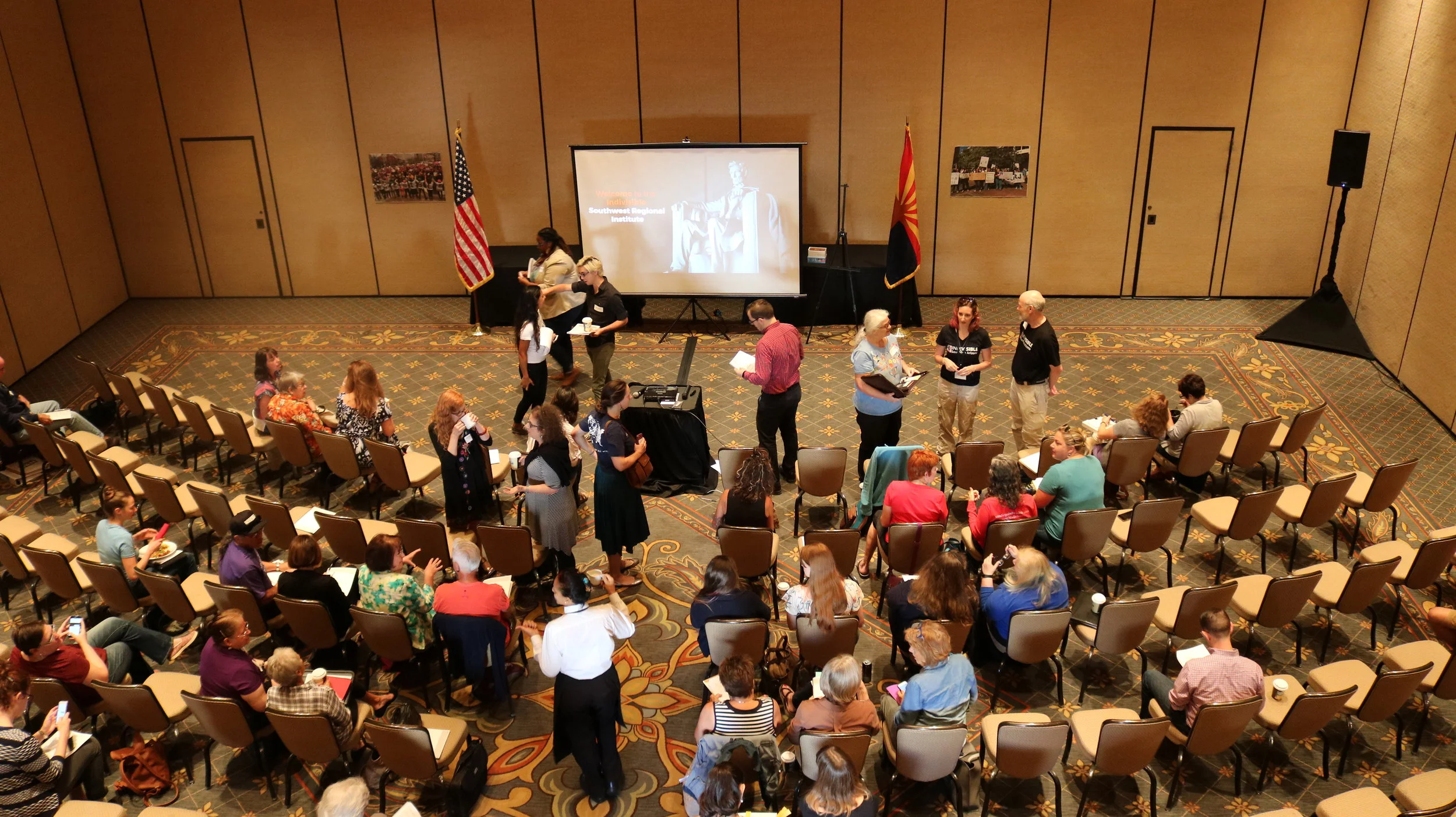Indivisible began in late 2016 after former congressional staffers came together to write The Indivisible Guide, a practical guide for newly engaged civic activists to take action in defending their progressive values within their local communities. The first step was to start a group -- an informal local community of people dedicated to taking action together.
The Guide quickly sparked a nation-wide progressive grassroots movement, with more than 5,000 local Indivisible groups registering across the country in 2017. In order to support this emerging movement, the authors of the Guide formed Indivisible Civics, a registered 501(c)(3) organization committed to providing civic education, policy resources, strategic guidance, and targeted trainings for groups across the country. With this support, Indivisible groups were empowered with the resources and tools they needed to hold their elected officials accountable and ignite change within their communities. Indivisible groups have held tens of thousands of actions in their local communities, from district office visits to marches and voter registration drives.
Read more about Indivisible’s impact in our 2019 Annual Report.
WHAT IS INDIVISIBLE PROJECT?
Indivisible Project, a 501(c)(4), was established to lift up that grassroots movement of local groups to defeat the Trump agenda, elect progressive leaders, and realize bold progressive policies. It supports local Indivisible groups by offering legislative advocacy and political expertise and by building political power everywhere. Learn more about Indivisible Project here.









